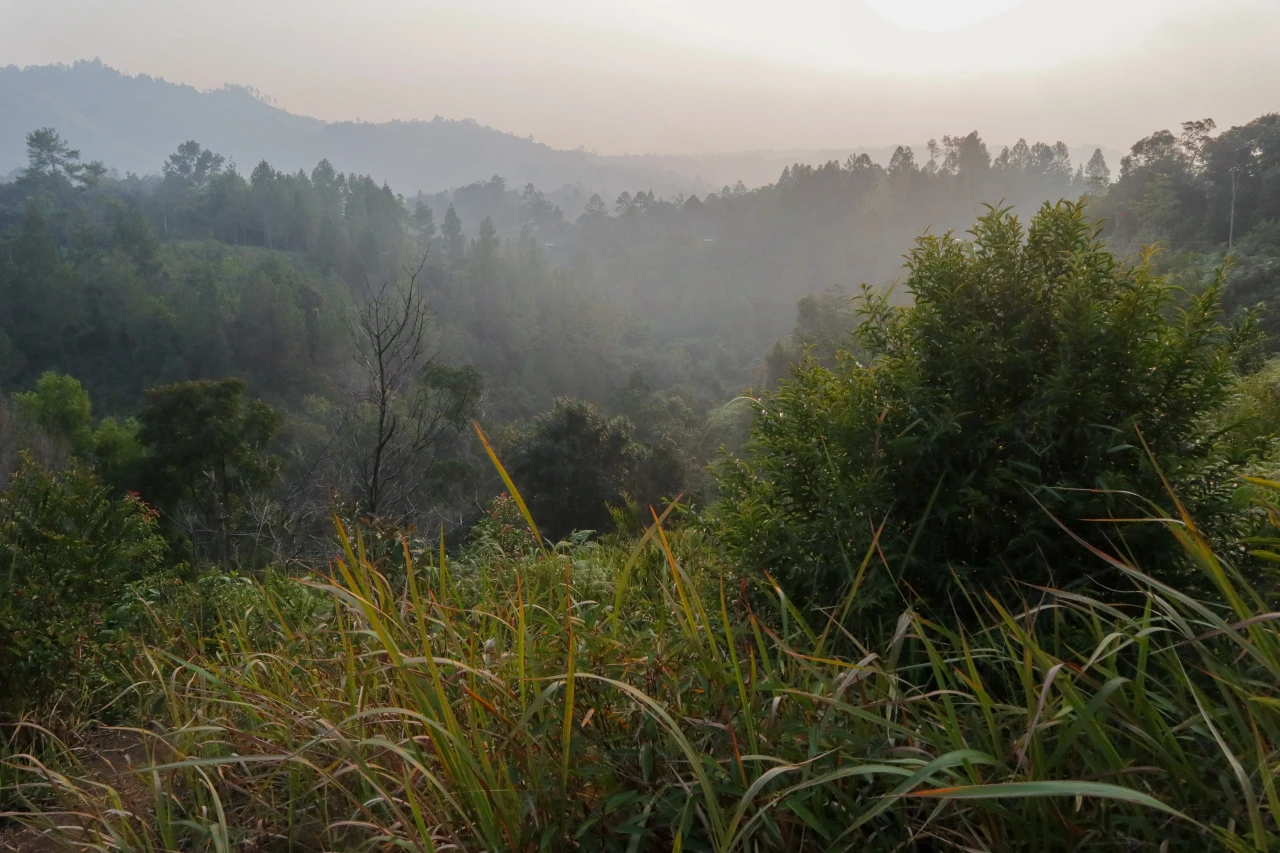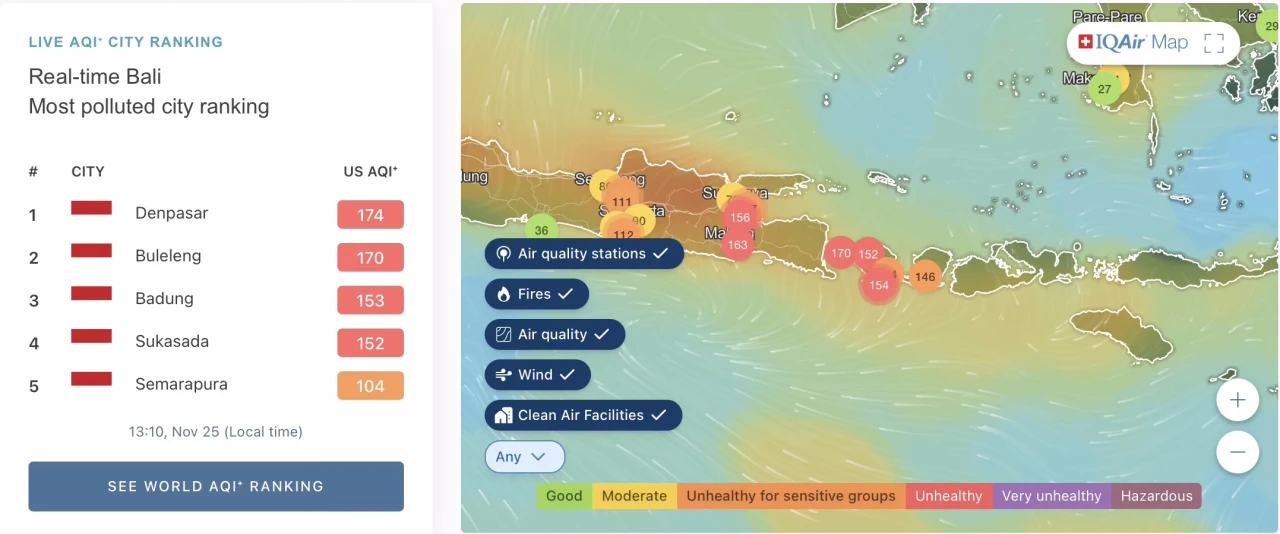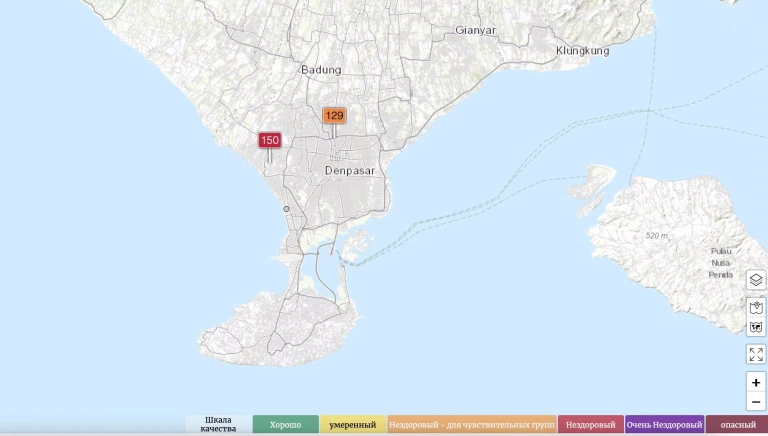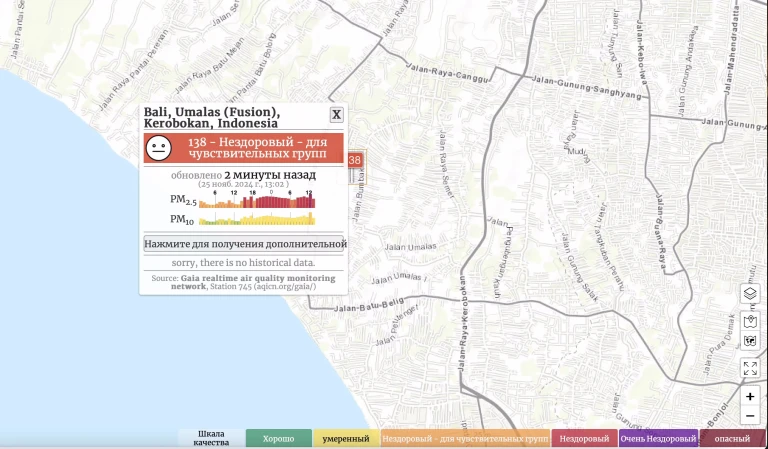On the morning of November 25, residents in southern Bali noticed the sun obscured by a thick haze. The sudden appearance of smog prompted many to check real-time air quality monitoring services.

It was revealed that air pollution levels on this day had reached critical levels, potentially affecting even healthy individuals. Common symptoms included breathing difficulties, coughing, and headaches.
Indonesia’s Ministry of Environment and Forestry (KLHK) has not released specific data regarding Bali, but experts noted that the worst air quality in the country that morning was recorded in East Java.

High pollution levels were also reported in Jakarta, causing concern among specialists since the rainy season typically reduces such issues.
The Danger of PM2.5 Particles
Air analysis revealed high concentrations of PM2.5 particles—fine airborne pollutants that include both solid microparticles and tiny liquid droplets. These particles range in size from 10 nm to 2.5 µm, about 30 times smaller than the diameter of a human hair.
PM2.5 particles can penetrate deep into the lungs and even enter the bloodstream. Once inside the body, they can cause inflammation and cell damage, potentially leading to serious conditions such as cancer.


The main human-made sources of PM2.5 include:
• Internal combustion engines (vehicles).
• Construction activities.
• Mining and manufacturing processes.
In urban areas, additional sources include road erosion, brake pad, and tire wear.
According to Indonesia’s Meteorology, Climatology, and Geophysics Agency (BMKG), PM2.5 concentrations are typically higher at night or early morning due to denser air during these times.
A recent report by the Union for International Cancer Control (UICC) states that 99% of the world’s population now breathes unhealthy air. In Indonesia, rapid urbanization has made air pollution an increasingly pressing issue, particularly in major cities. This has led to a rise in respiratory illnesses, including coughs, shortness of breath, and frequent colds among residents.
Experts recommend the following measures to reduce the impact of polluted air on your health:
• Limit outdoor activities, especially in the early morning or during hot weather.
• Wear a mask when going outside.
• Stay hydrated by drinking plenty of water.
• Rinse your nose and throat after being outdoors.
• Avoid ventilating rooms by opening windows; if necessary, cover windows with a damp cloth.
• Perform daily wet cleaning of your home.
• Use an air purifier indoors.
These steps can help mitigate the risks of air pollution while ensuring better health and safety for residents and visitors in Bali.
You can add one right now!